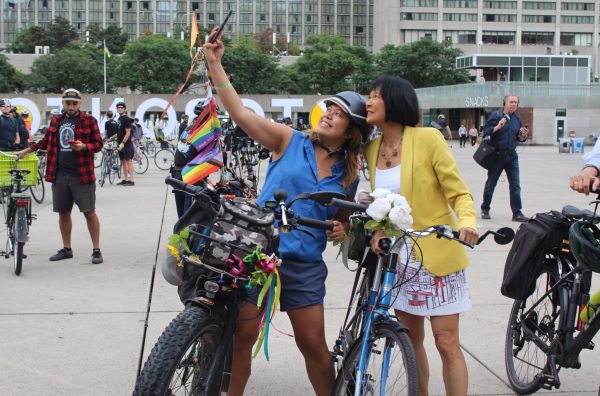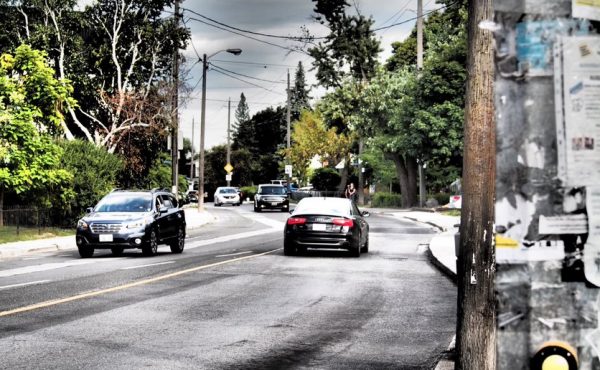Recently I watched a brash Bonnie Crombie accept the leadership of the sad Ontario Liberal Party. I’d been catching up on the winning ways of Toronto’s new mayor Olivia Chow and listening to her interviews and speeches, and I could not imagine two more contrasting political styles.
Crombie used every classic speech trick to drum up applause from the partisan crowd. “It’s you who will rebuild the party,” she pointed out forcefully. “We’ll do it together” — and the word together was used many times. No mention of the real concerns of Ontarians — especially housing. She is considered a real threat to Ford — a strong “retail politician.” She accused Ford of not being in touch with the people of Ontario, yet without saying why she was.
What a contrast with the calm, authentic, connected and emotional Chow in her first speech after becoming mayor: “Toronto’s story is my story…imagine a young family arriving here today with the same dreams (as my family had) for their children, for a better future…we all know what they’re up against. So, let’s imagine what could be possible, when we meet our challenges with the boundless potential of our ideas and the strength of our collective action. (She mentions a list of goof public amenities for fsmilits) That’s a city …worth building together, all of us.”
Her speech of hope, heart and an understanding of real people is one that John Tory could never have made. Or few other politicians for that matter. Much of Chow’s campaign strategy was to sell her own immigrant story; its message of change and hope was built on her founding the Institute for Change Leadership (ICL) at then Ryerson University in 2016.
In this strategy of political organizing, power is not a thing you wield. Rather, It’s created through relationships, when people with different but overlapping goals marshal their talents towards a common purpose. These relationships are built by sharing your “public narrative” with others — why are you doing what you’re doing.
The narrative is what binds. Policies are secondary. Chow’s campaign used this strategy well. She mobilized more than 2,500 volunteers on election day. They used the story telling technique at the door. “Organizing is bringing people together, building strong relationships with each other, looking at what we have in common. And that strong relationship is really what power is all about,” Olivia said.
Chow often told the story of her mother returning from the hospital after being beaten up by her father as a way of illustrating a policy issue: “Because I had a basement apartment (in Kensington market), she was able to stay with me,” Chow said, making the point that affordable housing is needed, and she will make sure it gets built. In her ICL teaching, she often turns a personal story into a “story of us.” Her dramatic immigrant story resonated in a city where more than half of all residents were born abroad and many more grew up with immigrant parents.
I worked on Chow’s 2014 losing mayoral campaign. The win this time had a lot to do with her unique approach to politics and also with her finding her own true voice. I and others produced well-intentioned speeches she had trouble delivering authentically. As she told a reporter this time: “I just want to say what I want to say and do what I want to do, and trust my 30 years of experience.”
How many times have I worked for candidates and found them over-scripted and inauthentic? “Let so-and-so be her or himself,” I’d say. You must believe what you are telling the electorate and if you don’t, it shows. This has been a problem for the over-scripted Justin Trudeau, but not for Chow.
Her campaign planks were based on principles. Those with established interests — from Premier Ford to former Mayor John Tory — did all they could to try to defeat her. Premier Ford even stated that a Chow victory would be “an unmitigated disaster.” The John Tory establishment tried to paint a tax-and-spend picture of her, and defended the status quo.
Just five months since being elected, she has accomplished more in getting a better deal for Toronto than John Tory did in his almost nine years in office. She made a mutually beneficial deal with Premier Ford, tempering her opposition to his plans for Ontario Place, accepting that it is Ontario Place, and that the fight belonged in the Ontario legislature, not at City Hall. The best part of this deal — Premier Ford agreed to upload the expensive Gardiner Expressway and Don Valley Parkway — something he outright rejected when one of Chow’s opponents raised it during the election. Relationships.
There was a friendly atmosphere when Toronto’s historic new deal was announced. The two met the media and, “focusing on what unites us,” as Ford said, outlined how the deal would save the city $7.6 billion, as well as another $1.2 billion in next two years for priorities Chow ran on: fighting homelessness and building housing, among other things. At that press conference, Chow opened her remarks starkly, describing high food bank usage, the underinvestment in Toronto, and the gaping budget hole she inherited. She quickly shared the spotlight, thanking the Premier for partnering to provide hope for so many families that were having a hard time getting by. “We are stronger together — to build a city more affordable, more caring and safe for everyone.” Classic Chow.
The Mayor’s ambitious housing strategy calls for Toronto to build 65,000 affordable rental units by 2030. Already, the city has inked several deals under federal programs to build affordable and rent-geared-to-income housing. Leveraging existing programs, the city is partnering with Indigenous and not-for-profit organizations to secure CHMC loans to deliver housing to those who need it most. She is off to a good start, and we can expect to see her form more strong relationships with the federal government.
During the campaign she synthesized her beliefs this way to a reporter: “What Jack [Layton, her late husband] wanted, what I want, is an engaged society. Anything with the words ‘community-based’ in front of it is bound to be good. With engaged citizens, you get better decisions. When there is common purpose, a deadline and a good facilitator, democracy works fine.”
I believe she has the guts to bring the changes that Toronto needs as well as the dedication to listen to those affected by city policies. A good combination. If Bonnie Crombie really wants to connect with the issues that concern average Ontarians, she might borrow a little heart from Olivia Chow.
Patrick Gossage, founder of Media Profile, served as press secretary to Prime Minister Pierre Trudeau and co-chaired David Miller’s first mayoral campaign. Follow him on Twitter at @cpgossage




